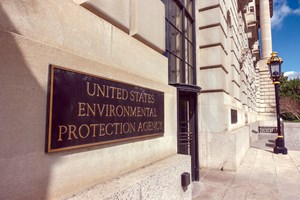Montana challenges EPA rule to protect water quality certifications, foster infrastructure development
(UI) — Montana Attorney General Austin Knudsen and ten other state attorneys general filed a lawsuit against an Environmental Protection Agency (EPA) rule on Dec. 5 that makes sweeping and unlawful changes to federal regulations governing state-issued water quality certifications.
The Biden administration rule overturns reforms made by President Trump to bring clarity and consistency to the certification process and hinders the development of vital infrastructure and energy projects including pipelines, natural gas plants, hydropower, and renewable energy.
The lawsuit, which is Attorney General Knudsen’s 35th lawsuit against the Biden administration, asks the court to vacate the Biden administration’s 2023 Water Quality Certification Rule and block the EPA from enforcing it, leaving Trump-era reforms in effect.
“The Trump administration’s reforms preserved the role of states in protecting their water quality while stopping states acting in bad faith and abusing the process to achieve unrelated policy goals and stopping or delaying nationally important projects and critical infrastructure,” Attorney General Knudsen said. “In its new rule, Biden’s EPA has once again turned the Clean Water Act on its head, ignoring congressional intent and exceeding its authority. I will continue to fight the Biden administration’s policies that harm Montanans.”
“The Montana Chamber of Commerce appreciates Attorney General Knudsen standing up for Montana businesses to fight the EPA’s new burdensome, top-down rule that will hurt industries across Montana,” Todd O’Hair, president and CEO of the Montana Chamber of Commerce, said. “With shortened timelines, onerous requirements, and a lack of clarity, Montana businesses will be spending more time fighting government regulation than actually participating in our economy.”
Under Section 401 of the Clean Water Act, if a federal license or permit will authorize an activity that may result in discharge into a navigable water, the applicant must obtain a water quality certification from the state in which the discharge “originates.” This provides states with important but limited authority in the permitting of federal projects that could affect water quality, authorizing states to address water quality and only within reasonable time limits not to exceed one year.
Prior to the Trump administration’s 2020 change in regulations, the rule had not been updated since 1971. During that time, some states abused the limited authority intended by Congress by using procedural gimmicks to extend the time the Clean Water Act gives them to make certification decisions and effectively deny projects based on non-water quality considerations, such as preferences regarding energy policy.
This includes Washington’s 2017 decision to deny water quality permits for the proposed Millennium Bulk Terminals coal export terminal that would have enabled Montana coal to more easily be exported to markets in Asia, where coal-fired power is being used to increase electrification and a significant number of coal-fired power plants are under construction.
The State of Washington effectively blockaded Montana for political reasons unrelated to water quality, instead imposing its liberal governor’s own personal policy preference against fossil fuels.
The 2020 rule clarified the appropriate process for and scope of CWA certifications, while assuring certifying authorities retained their authority in providing timely reviews regarding water quality impacts of proposed discharges.
The Biden administration’s rule overlooks the procedural abuses that necessitated the 2020 revisions, removing the safeguards and enabling individual states to impede the development of critical infrastructure necessary to modernize the nation’s means of generating and supporting energy. It violates the reasonable statutory limits Congress placed on the scope and duration of the Section 401 certification process.
The lawsuit states the 2023 Water Quality Certification Rule is arbitrary and capricious, an abuse of the EPA’s discretion, exceeds the statutory authority on which it relies, and is otherwise contrary to law.
The lawsuit is led by the Louisiana Attorney General’s Office. American Petroleum Institute, Interstate Natural Gas Association of America, and National Hydropower Association are also plaintiffs.
Related News
From Archive

- Glenfarne Alaska LNG targets late-2026 construction start for 807-mile pipeline project
- U.S. water reuse boom to fuel $47 billion in infrastructure spending through 2035
- $2.3 billion approved to construct 236-mile Texas-to-Gulf gas pipeline
- Major water pipe break in Puerto Rico hits over 165,000 customers
- Potomac River Tunnel project enters construction phase beneath Washington, D.C.
- Pennsylvania American Water launches interactive map to identify, replace lead water service lines
- Trump's tariffs drive $33 million cost increase for Cincinnati sewer project
- Utah city launches historic $70 million tunnel project using box jacking under active rail line
- Tulsa residents warned after sewer lines damaged by boring work
- Fatal trench collapse halts sewer construction in Massachusetts; two workers hospitalized




Comments